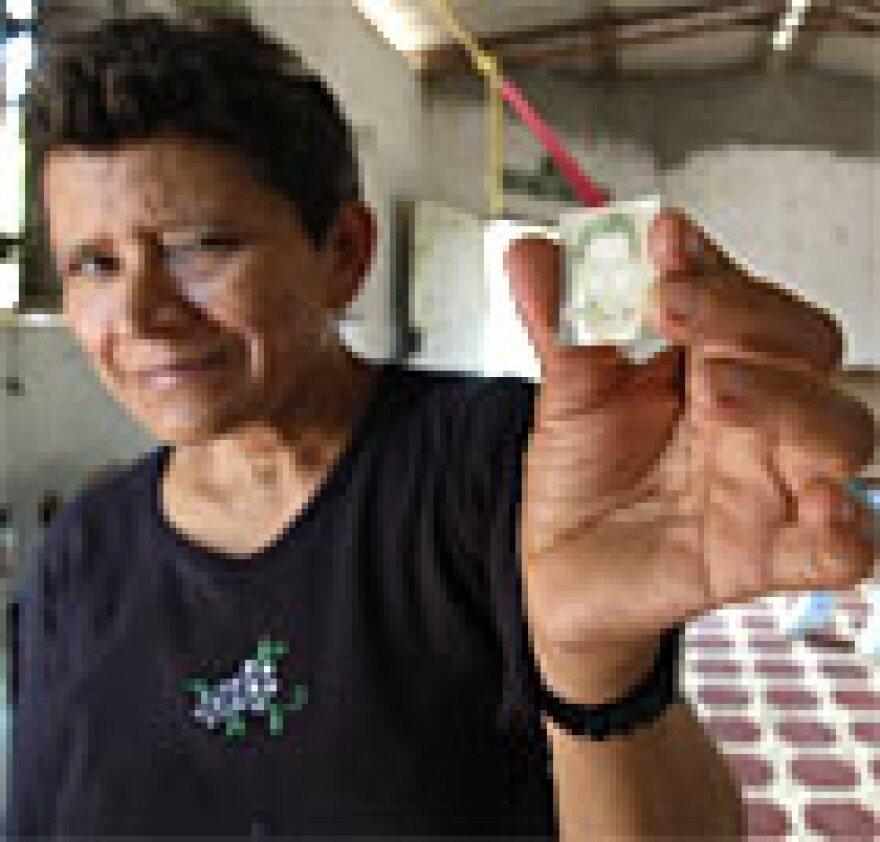
Each year hundreds of thousands of Latinos set off on a risky journey north to the United States in search of work. Many come from the mountains and coastal plains of eastern El Salvador, where economic hard times have forced people to look for work elsewhere.
In the first of three reports on Latino migration to the U.S., NPR's Gerry Hadden begins at the trailhead, where poverty drives people abroad, and where some communities are thriving off the money sent home by relatives in the United States.
One in four Salvadorans strike out for the States. The reasons for the exodus are largely economic. A global glut has caused coffee prices to collapse and plantation workers across Central America are abandoning their homes.
At the Prieto plantation, in the lush and once prosperous highlands of Berlin, El Salvador, 33-year-old foreman Rafael Castellano says he no longer has anyone to supervise.
"There used to be lots of people working here, sometimes up to 200 employees, fertilizing, planting," Castellano says. "Now it's just me. This plantation is abandoned. Many of those I supervised have gone north. I've thought about going north because I'm not really earning anything now."
In some cases the desire to leave has tragic consequences. In the town of Santa Elena, in the balmy Salvadoran lowlands, Blanca Romero recently learned that her oldest child, 25-year-old Wilmer, died in the scorching heat of the Sonora Desert, in southern Arizona. He left home to try his luck in America as an undocumented worker.
Romero, a local schoolteacher, says she had a bad feeling as her son was leaving home. "I said to him, 'Don't go for long.' " He told her not to worry, that he would just be gone for a couple of days "to check it out," then he would come back. "It was six in the morning. He opened the door and said goodbye," Romero says.
Four hundred people have died in the desert south of Tucson since 1999. This year alone, 18 of the dead were Salvadorans. Despite the risks, Mexican and U.S. immigration authorities say the number of Central Americans they catch and deport is rising.
On Tuesday, Hadden picks up the migration trail at its most perilous point: the Guatemala/Mexico border, where gangs, corrupt authorities and a dangerous cargo train stop short many Central Americans on their journey north.
Copyright 2022 NPR. To see more, visit https://www.npr.org.

